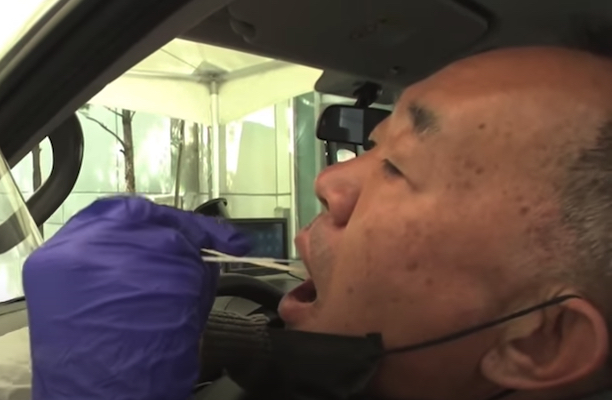Dr Doowon Lee, Naomi Moy, Dr Nader Mahmoudi, Dr Ayman Fouda, Dr Bobae Choi and Professor Francesco Paolucci spotlight successful COVID-19 response strategies.
FOUR COUNTRIES which have been successful in managing the COVID-19 pandemic and achieving outstanding health outcomes are South Korea, Singapore, New Zealand and Greece. These countries, with similar geographic nature (islands and peninsulas and economies dependent on service-producing industries), have practised a wide variety of mitigation and suppression measures in order to contain the outbreak.
South Korea and Singapore mainly focus on high-tech contact tracing and rigorous testing, whereas New Zealand and Greece seem to follow hard and early restrictions. Now that there is the fear of second or third waves of COVID-19 disease occurring across the world, there are many lessons to be learnt from these countries.
South Korea and Singapore: First beaten, first up
At the initial stage of the outbreak, former Korea Centers for Disease Control and Prevention – now Korea Disease Control and Prevention Agency (KDCA) – jointly with medical professionals, developed several innovations and technology interventions to address containment and spread.
In addition to exploring various treatment guidelines, South Korea practised universal testing with a 12-hour turnaround using the drive-through and walk-through testing methods. The country used extensive movement tracking systems, publicly published contact tracing data through a central database and introduced a four-tier patient severity index with community treatment isolation centres at the start of the outbreak. This was strengthened by innovative surveillance technology.
Furthermore, the South Korean Government pursued significant deregulation in order to be able to foster telemedicine further for treating COVID-19 and non-COVID-19 patients.
Singapore, however, initially focused on general hygiene and border control measures rather than tracing contacts of confirmed cases. In addition to issuing fines of up to $10,000 and six-months prison for breaking quarantine law, Singapore, in the beginning, was using technology to ensure social distancing and increased citizens’ awareness of crowded places.
Later, Singapore introduced multiple innovations which assisted community-driven contact tracing:
- TraceTogether, a mobile application designed to share proximity information between devices was released on 20 March;
- VigilantGantry, a fully automated Artificial intelligence-based (AI) temperature scanning device, introduced on 21 April; and
- SafeEntry, a national digital online check-in system for businesses, launched on 9 May, are examples of the Singaporean Government’s technological efforts to control COVID-19 outbreaks.
New Zealand and Greece: Lockdown preferred
These countries have placed a series of similar actions such as self-isolation, closing non-essential business and travel bans in order to contain the virus. Strict travel bans in Singapore and New Zealand ensured entry for residents and citizens only. While Greece introduced and expanded flight bans and border entry from several at-risk countries.
New Zealand and Greece fully locked down earlier than most nations relative to the number of cases. However, Greece does not seem willing to reimpose secondary lockdowns due to devastating impacts on the economy. Not to mention that these strict measures are not sustainable in the long term, given the tremendous impact on the economy and small businesses.
Impacts of lockdown: Is it worth it?
These four countries have performed similarly in the containment of the virus with different strategies.
South Korea and Singapore were able to keep the economy open by applying rigorous high-tech contact tracing and testing strategies in order to keep case numbers down. These two countries already showed promising performance in the introduction of AI and digitalised solutions in solving their problems.
On the other hand, New Zealand and Greece have tried to restrain the virus by imposing strict, sometimes partial, lockdowns. They have preferred to act hard and early to tackle COVID-19 and get it under control.
Another criticism around these two policies is the violation of freedom and privacy. While technological advances can only be helpful by utilising a high level of personal information, lockdowns require people to tolerate psychological and mental stress due to lack of mobility and socialisation.
Statistics show that either of these approaches works fine in suppressing the virus, despite the fears of further waves. Unfortunately, as the second wave has impacted several countries and another round of lockdowns are being announced, governments are facing anti-coronavirus lockdown protests.
Ultimately, each government must decide which strategy would be best but also needs to carefully assess the consensus of its people and consider policies that are well accepted by the public. For example, a survey in South Korea showed that 90.3 per cent supported the movement of publicly publishing personal information on patients’ movement and 77 per cent were willing to provide their own personal information for better contact tracing results.
As any contact tracing app needs at least three-quarters of a population to download the app to be effective, for governments that wish to implement any technology-based contact tracing methods, they should first win support and trust from their people in utilising personal information data.
Dr Doowon Lee is Assistant Dean, International – Strategy and Programs at The University of Newcastle, Australia. Naomi Moy is a research fellow, Department of Sociology and Business Law at the University of Bologna. Dr Nader Mahmoudi is a casual academic, Newcastle Business School at The University of Newcastle, Australia. Dr Ayman Fouda is a teaching and research assistant at Management Centre Innsbruck. Dr Bobae Choi is a senior lecturer in financial accounting at the University of Newcastle. Francesco Paolucci is Professor of Health Economics & Policy at the Faculty of Business & Law, University of Newcastle and the School of Economics & Management, University of Bologna.
Related Articles
- The coronavirus diaries
- Why the U.S. is number one for COVID-19-related deaths
- Reasons behind Europe's COVID-19 second wave inconsistencies
- Right-wing politics costs lives, data shows
- Wren's week: Victoria makes strong progress in battle against COVID-19
 This work is licensed under a Creative Commons Attribution-NonCommercial-NoDerivs 3.0 Australia License
This work is licensed under a Creative Commons Attribution-NonCommercial-NoDerivs 3.0 Australia License
Support independent journalism Subscribe to IA.













